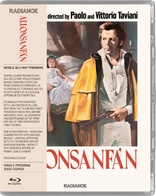Allonsanfān Blu-ray Movie
HomeAllonsanfān Blu-ray Movie 
AllonsanfanRadiance Films | 1974 | 112 min | Not rated | Feb 27, 2024
Movie rating
7 | / 10 |
Blu-ray rating
| Users | 4.0 | |
| Reviewer | 4.0 | |
| Overall | 4.0 |
Overview
Allonsanfān (1974)
A anarchist leader (Fulvio) wishes to retire, as he is old and tired. He tries to hide himself, but his friends find him and insist he carries on helping them.
Starring: Marcello Mastroianni, Lea Massari, Mimsy Farmer, Laura Betti, Claudio CassinelliDirector: Paolo Taviani, Vittorio Taviani
| Foreign | Uncertain |
| Drama | Uncertain |
| History | Uncertain |
Specifications
Video
Video codec: MPEG-4 AVC
Video resolution: 1080p
Aspect ratio: 1.66:1
Original aspect ratio: 1.66:1
Audio
Italian: LPCM 2.0 Mono (48kHz, 24-bit)
Subtitles
English
Discs
Blu-ray Disc
Single disc (1 BD)
Playback
Region A, B (locked)
Review
Rating summary
| Movie | 4.0 | |
| Video | 4.5 | |
| Audio | 4.5 | |
| Extras | 2.5 | |
| Overall | 4.0 |
Allonsanfān Blu-ray Movie Review
Reviewed by Jeffrey Kauffman February 28, 2024Several years ago Cohen Media Group's Cohen Film Collection imprint brought out The Taviani Brothers Collection, a "triple feature" release which offered what are arguably the two best remembered Taviani Brothers films, Padre Padrone and The Night of the Shooting Stars, with the collection's third choice, 1984's Kaos, being something of an outlier (at least in terms of international renown). Film fans in general and especially those who keep track of things like festival awards and the like will no doubt know that the "double whammy" of Padre Padrone and The Night of the Shooting Stars put the Taviani Brothers firmly on the map of A List auteurs, but rather interestingly the siblings didn't really manage to maintain that status, and a lot of their post-Shooting Stars filmography tended to be overlooked (with the possible exception of Caesar Must Die, which as of the writing of this review is available on Blu-ray only in the Brasilian edition the link points to). The overwhelming reactions to Padre Padrone and The Night of the Shooting Stars also perhaps tended to subsume the earlier work of the Taviani Brothers (i.e., films released prior to 1977's Padre Padrone), and that includes the film the brothers made "directly" (if three years) before Padre Padrone, 1974's Allonsanfān (the unusual title turns out to be the name of one of the characters in the story, but is also a kind of quasi-mondegreen skewing the opening two words of the French national anthem, i.e., "allons, enfants"). Commentator Michael Brooke mentions how when he was asked to write an article about an "unrecognized gem" for Sight and Sound, he immediately chose Allonsanfān, though Brooke is rather quick to suggest that Ennio Morricone's now legendary score for the film may be better known than the film itself.
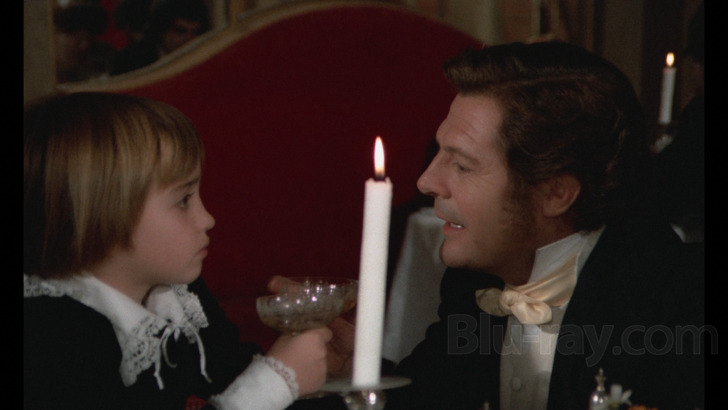
Italian history can be a pretty messy affair, and that jumbled quality may be something of an obstacle for viewers coming to Allonsanfān who are unacquainted with things like the so-called Jacobins, early efforts that would result in the ultimate "unification of Italy", and some of the revolutionary fervor that was part and parcel not just of what would become Italy, but other nations like France. Michael Brooke's excellent commentary provides a bit of context for this convoluted background, one which includes a multi-national coalition that fought against French Revolutionary forces in Northern Italy, in a series of skirmishes that helped burnish the reputation of some young commander named Napoleon Bonaparte. Allonsanfān's focal character is erstwhile Italian (counter?) revolutionary Fulvio (Marcello Mastroianni), who has spent considerable (if never fully detailed) time in prison for his efforts. He is released as the film opens, but it turns out it's a ploy on the part of officials who think Fulvio will lead them directly to a secret band of provocateurs called the Sublime Brothers, though Fulvio soon finds out those same officials have already spread a rumor that Fulvio has "confessed" information about the Sublime Brothers while in captivity.
That then sets in motion a labyrinthine plot which sees Fulvio first captured by the Sublime Brothers, who believe he has "ratted" on them, but who soon figure out he hasn't, which then allows Fulvio to reunite with his sister Esther (Laura Betti) and other family members, though under rather peculiar circumstances (Fulvio arrives "incognito" to the family home as a supposed traveling monk). By the time his lover Charlotte (Lea Massari) shows up at his family estate, though, with plans for more revolutionary fervor, Fulvio may have decided that maybe being part of the landed gentry isn't that bad, after all.
Kind of ironically, given its Italian setting and a plot that hinges on a man unsuccessfully trying to extract himself from a perceived "brotherhood", there are actually elements at play in Allonsanfān that are at least a bit reminiscent of similar plot mechanics in the second and third installments in particular of The Godfather Trilogy . In this case, however, Fulvio is decidedly more ambiguous in his loyalties, changing sides repeatedly when events conspire against whatever the last side he chose. One way or the other, though, the general concept of an "activist" attempting to escape that kind of life while being sucked back in may help give those uncertain of the history being portrayed a bit of a foothold.
If there are probably going to be plot points here that may require a bit of further research for those interested in the real life historical context of events, the film's presentational style is viscerally apparent, and includes some rather interesting examples of what Michael Brooke refers to as "color theory". Brooke actually argues that one scene in particular actually overtly addresses "color theory", as various people in Fulvio's family talk about what "color they are", with appropriately hued depictions being shown (see screenshot 4 for a "violet" example). There are other kind of slightly magical realist moments when, for example, Fulvio is more or less kidnapped by the Sublime Brothers directly after getting out of prison and suddenly everything is cast in green, a color that recurs and which Brooke points out has a decidedly more sinister meaning than arguably "traditional" allusions like fresh signs of life in spring.
Allonsanfān Blu-ray Movie, Video Quality 
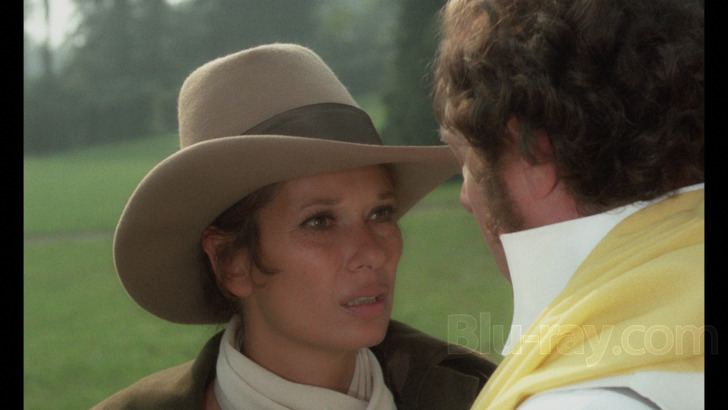
Allonsanfān is presented on Blu-ray courtesy of Radiance Films with an AVC encoded 1080p transfer in 1.66:1. Radiance tends not to provide a ton of technical information about its transfers, and the insert booklet offers the following brief description:
Allonsanfān was restored in 2K by Surf Film and Istituto Luce Cinecittā and supplied to Radiance Films as a high definition digital file.This is an often gorgeous looking presentation, with a nicely robust palette that supports the "color theory" Michael Brooke mentions in his commentary extremely well for the most part, even if some passing moments, like the first use of green when Fulvio gets taken by the Sublime Brothers, can almost lead to a desaturated appearance (a later use of green, when Fulvio puts a green scarf over a lamp, doesn't exhibit the same anomaly). Some of the naturally lit and ungraded outdoor material in particular resonates extremely well, and the all important red jackets the revolutionaries wear pop with considerable energy. There are some passing moments, often in but not solely relegated to opticals, where clarity and densities can falter momentarily. That last third or so of the story can often be drenched in shadows, and while there's an almost Vermeer-esque look to the visuals at times, with an emphasis on browns and golds, there can be slight deficits in fine detail. Grain resolves naturally for the most part, but can occasionally look a bit on the gritty, dirty side, especially in some of the closing battlefield scenes shot against almost white skies.
Allonsanfān Blu-ray Movie, Audio Quality 
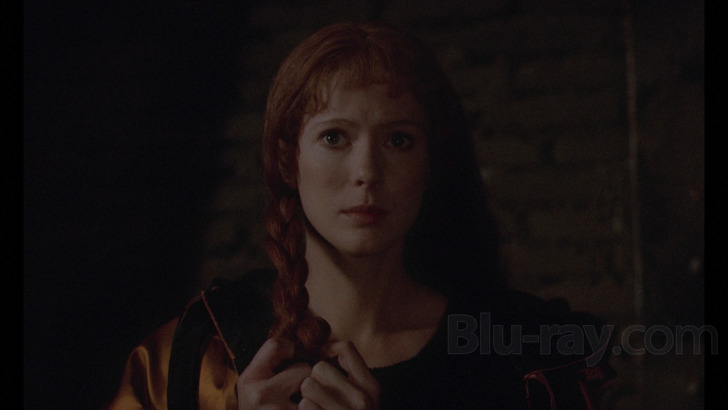
Allonsanfān features a great sounding LPCM 2.0 Mono track in the original Italian, though film fans may be less interested in any spoken language than in the "universal language" of music, in this case Ennio Morricone's score, which received "new life" when the always reliable curator Quentin Tarantino used Morricone's theme for this film as the closing music in Inglourious Basterds. This is certainly one of Morricone's most enjoyable scores, even if it may not be as widely recognized as, say, The Good, the Bad and the Ugly. Dialogue is cleanly and clearly presented throughout. Optional English subtitles are available.
Allonsanfān Blu-ray Movie, Special Features and Extras 
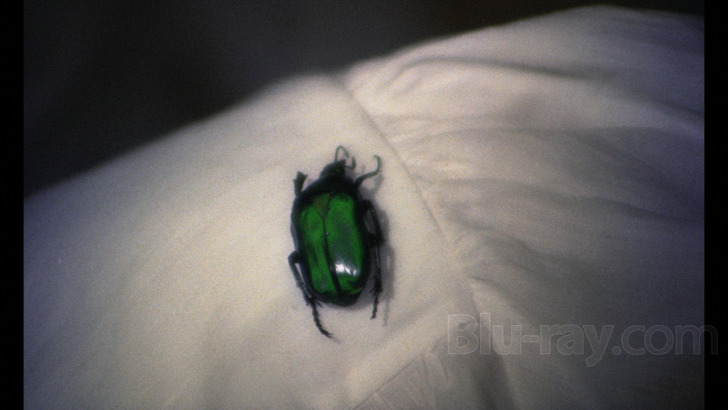
- Audio Commentary by Michael Brooke
- Gideon Bachmann Filmmakers Interview (HD; 57:11) is an archival 1966 audio recording featuring Gideon Bachmann interviewing a group which includes Paolo Taviani. This plays to a black screen, with English subtitles translating the Italian.
- Trailer (HD; 4:47)
Allonsanfān Blu-ray Movie, Overall Score and Recommendation 
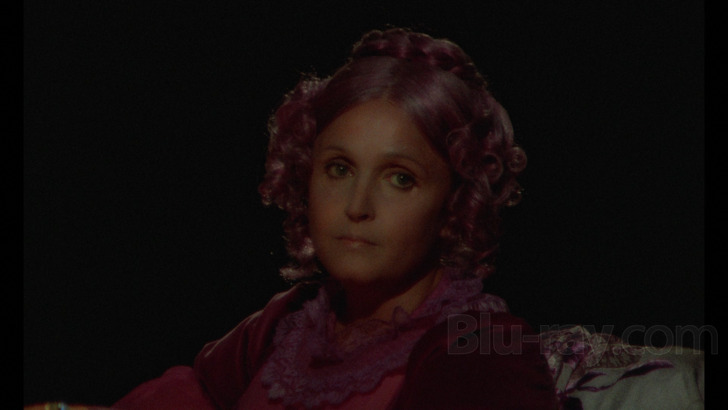
In both his commentary and his original Sight & Sound article about Allonsanfān, Michael Brooke alludes to how "operatic" the story is, and that somewhat overblown character may not be everyone's cup of Verdi, Puccini, or other Italian masters, but the basic dilemma an obviously morally ambivalent Fulvio faces repeatedly in the film should strike a chord with anyone who has ever done anything for expediency's sake. Technical merits are solid and the supplements very enjoyable. Recommended.
Similar titles
Similar titles you might also like

Bandits of Orgosolo
Banditi a Orgosolo | Limited Edition
1961

Misunderstood
Incompreso
1966

The Sting of Death
死の棘 / Shi no toge
1990

Killer's Mission
賞金稼ぎ / Shōkin kasegi
1969

La Marseillaise
The Marseillaise
1938

Liberté
2019

Viva l'Italia
Garibaldi
1961

The Emperor in August
日本のいちばん長い日 / Nihon no ichiban nagai hi ketteiban | Limited Edition to 3000
2015

Witchhammer
Kladivo na čarodějnice / Witches' Hammer / The Witch Hunt
1969

The Tree of Wooden Clogs
L'albero degli zoccoli
1978

Tchao pantin
So Long, Stooge | Limited Edition
1983

Black Venus
Vénus noire
2010

Lucía
1968

I, the Executioner
みな殺しの霊歌 / Minagoroshi no reika
1968

Revenge
Mest / The Red Flute
1989

The Marquise of O
Die Marquise von O / Slipcover in Original Pressing
1976

The First King: Birth of an Empire
Il Primo Re
2019

The Assassin of the Tsar
Цареубийца
1991

Wrath of the Wind
Trinity Sees Red
1970

Sebastiane
Derek Jarman
1976
